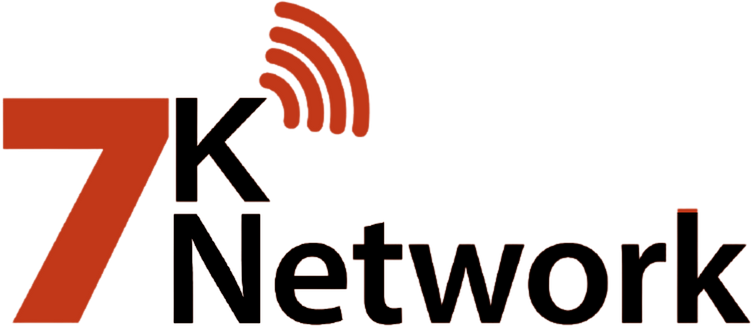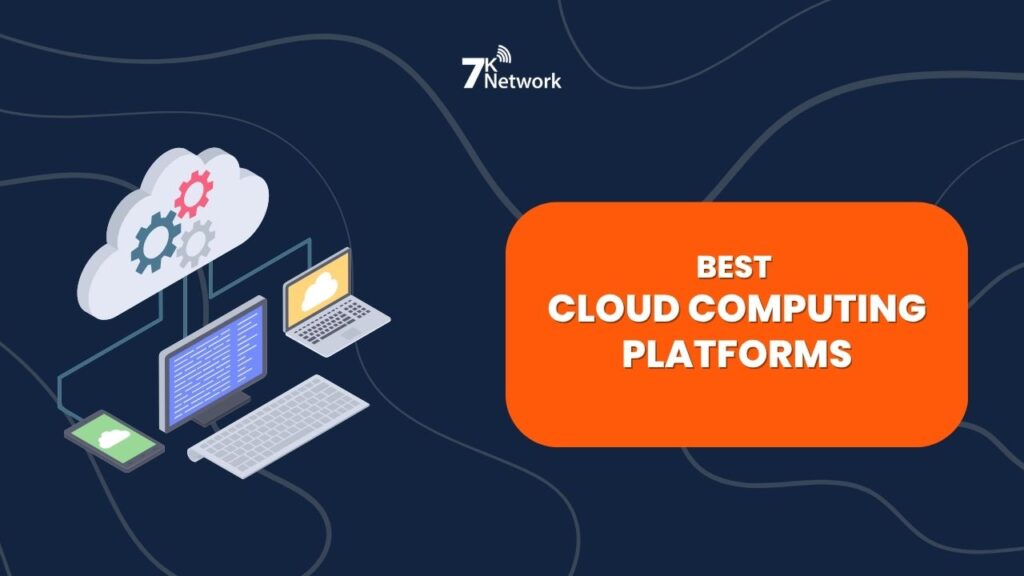Cloud computing platforms have changed how businesses, developers, and companies handle their IT infrastructure as they offer cost-efficient, agile, and elastic solutions. They allow organizations to deploy applications, host data, and execute compute-intensive workloads without having hardware in-house. The use of cloud computing is expanding across verticals, touching developers, IT managers, data scientists, as well as marketers who leverage cloud-based utilities for analytics and automation.
This top 15 list of cloud computing platforms was compiled based on various important factors such as scalability, security, cost, ease of integration, and support for cutting-edge technologies like AI, machine learning, and big data. Platforms with hybrid and multi-cloud support, robust developer tools, and good customer support were also given priority.
If you’re a startup seeking affordable cloud offerings or a corporation in need of high-performance computing, this book will assist you in finding the most suitable cloud platform for your company. Professionals aiming to deepen their expertise in this space often pursue an AWS course, which provides hands-on knowledge of one of the most widely used cloud platforms.
Criteria to Opt for the Best Cloud Computing Platforms
Choosing the right cloud computing platforms is crucial to developers and businesses. Below are the most significant factors to watch out for:
1. Scalability: Ensure the platform is scalable in either direction depending on your company’s needs, and it can support increasing workloads efficiently.
2. Performance & Reliability: Look for those with high uptime promises (e.g., 99.9% or more) and rapid response times for better user experience.
3. Security & Compliance: Secure encryption of data, compliance certs (e.g., GDPR, HIPAA), and robust security features including firewalls and identity management.
4. Pricing & Cost Management: Pricing models (pay-as-you-go, subscription) and cost savings features such as reserved instances and auto-scaling.
5. Integration & Compatibility: Integrate seamlessly with existing apps, databases, and third-party services.
6. AI & Big Data Support: In the case of AI usage, machine learning, or big data, choose a platform that has inbuilt AI/ML functionality and data analysis features.
7. Hybrid & Multi-Cloud Support: Organizations that need flexibility need to find platforms providing hybrid cloud or multi-cloud support.
8. Developer & DevOps Tools: Find CI/CD, Kubernetes, and containerization support for smooth software development.
9. Customer Support & Documentation: Good customer support, community support, and thorough documentation are required for resolving issues.
10. Worldwide Reach & Data Centers: Seek cloud providers with data centers in multiple regions for low latency and regulatory compliance.
The chosen platform is dependent on business goals, technical needs, and cost.
List of 15 Cloud Computing Platforms
1. Amazon Web Services (AWS)
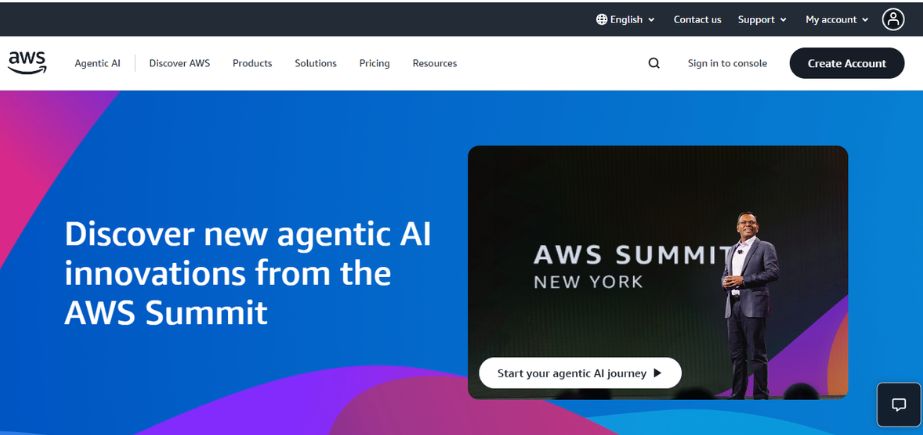
The AWS cloud platform offers its users the largest selection of more than 200 services that cover computing and storage databases and artificial intelligence and security platforms. The platform extends its scalable infrastructure from start-ups through to enterprises by operating from worldwide data centers which create high availability. AWS embraces hybrid cloud computing solutions and enables compatibility with different third-party applications through its platform.
E-commerce businesses alongside those in the finance sector as well as healthcare industries and gaming companies heavily depend on AWS for their operations. Proficiency is needed to effectively manage resource allocation since AWS pricing comes with intricate systems.
Key Features:
- Compute services (EC2, Lambda, etc.)
- Storage and databases (S3, RDS, DynamoDB)
- AI, ML, and big data analytics
- Secure networking and cloud security
Pros:
- Highly scalable and reliable
- Vast global network of data centers
Cons:
- Complex pricing structure
- Steeper learning curve for beginners
Pricing:
Pay-as-you-go and subscription-based models
Who Should Use It?
Enterprises, startups, and developers needing a flexible, scalable cloud infrastructure.
2. Microsoft Azure
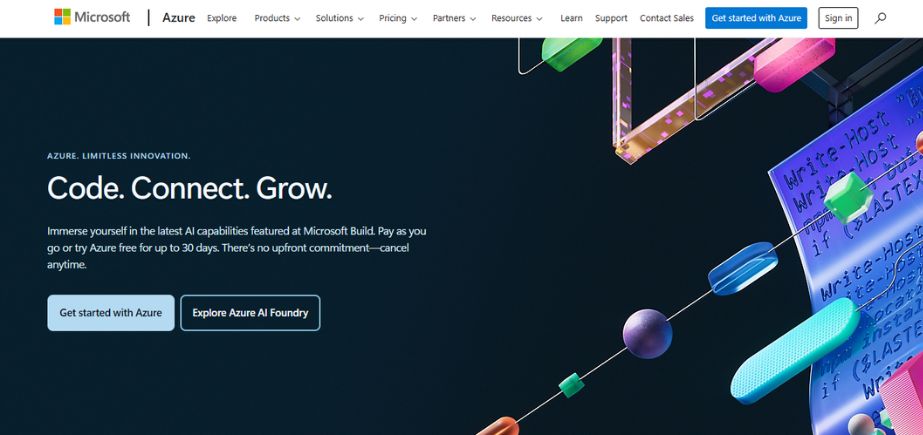
Microsoft Azure operates as a premier cloud computing service that combines features for AI, machine learning, IoT and hybrid cloud operations. This platform easily works with Microsoft products including Office 365 and Windows Server thus being perfect for organizations operating through Microsoft environments. The security measures together with compliance features and analytical tools in Azure maintain an enterprise-class standard.
The solution features high scalability through virtual machines as well as Kubernetes and database services. Azure operates powerfully but modest enterprises may find it too costly and its implementation demands substantial training. Large organizations together with government agencies and enterprises find Azure to be their optimal solution.
Key Features:
- AI and machine learning services
- Hybrid cloud capabilities
- Strong integration with Microsoft products (Office, Windows)
- Security and compliance solutions
Pros:
- Ideal for enterprises using Microsoft ecosystem
- Strong hybrid and multi-cloud capabilities
Cons:
- Can be costly for smaller businesses
- Complex for beginners
Pricing:
Pay-as-you-go, reserved instances, and enterprise plans
Who Should Use It?
Enterprises, IT professionals, and developers needing hybrid cloud solutions.
3. Google Cloud Platform (GCP)
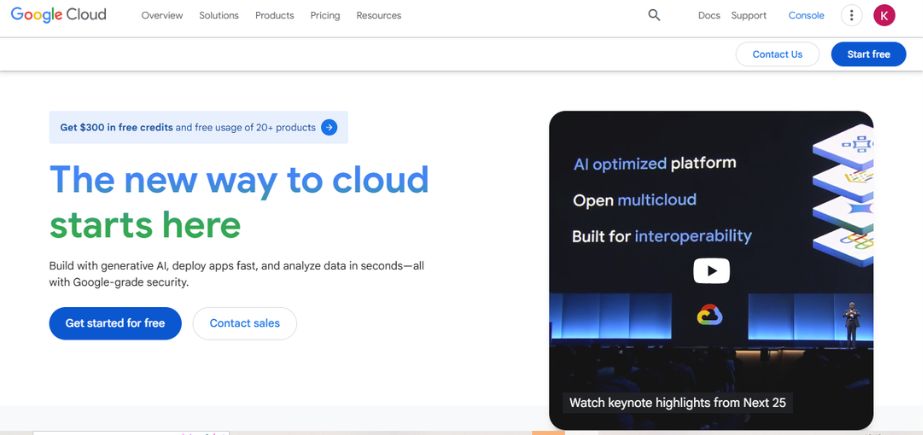
The cloud solutions of GCP consist of advanced capabilities such as AI and machine learning as well as big data analytics together with scalable infrastructure. This cloud platform is known for its power of high-performance computing in addition to its Kubernetes compatibility and advanced networking functions.
Cloud solutions provided by GCP serve industries that use AI-based applications as well as digital transformation initiatives and data science operations. GCP operates with a smaller number of data centers in various locations when compared to AWS and Azure. Technology companies along with developers and businesses specialized in AI and data science together with cloud-native applications make the best use of this platform.
Key Features:
- Scalable compute services (Compute Engine, Kubernetes Engine)
- BigQuery for data analytics
- AI and ML solutions
- Secure networking and cloud storage
Pros:
- Competitive pricing compared to AWS and Azure
- Strong AI and data analytics capabilities
Cons:
- Smaller service catalog than AWS
- Fewer global data centers than AWS and Azure
Pricing:
Pay-as-you-go, free tier available
Who Should Use It?
AI-driven businesses, startups, and data scientists.
4. IBM Cloud
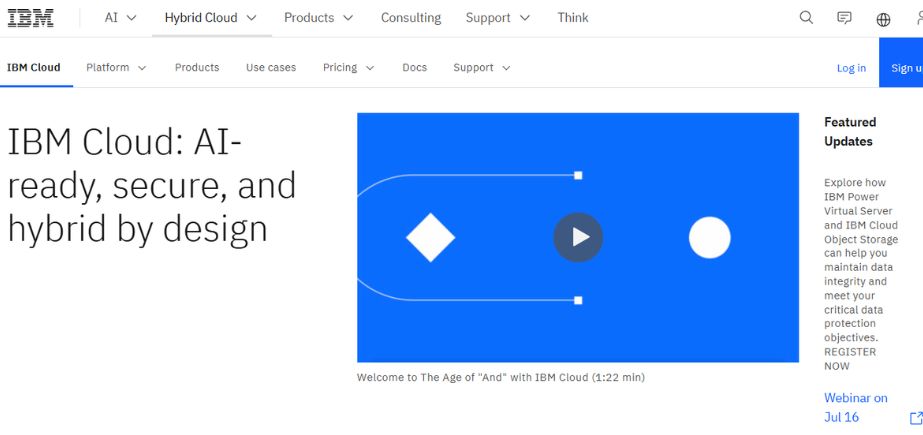
IBM Cloud serves enterprises with its platform capabilities that include AI services as well as blockchain capabilities and IoT solutions complemented by hybrid cloud solutions. Through advanced analytics capabilities, IBM Cloud stands as a perfect choice for organizations that operate AI-driven applications. The security-oriented infrastructure within IBM Cloud allows users to work in multi-cloud and hybrid cloud systems.
The platform reaches its peak performance when serving enterprise requirements yet faces less adoption within the public cloud domain than AWS and Azure. Price structures tend to be expensive on a per-business basis for smaller organizations. IBM Cloud establishes its optimal performance point when serving big businesses together with financial organizations and automated intelligent programming environments.
Key Features:
- AI-powered Watson services
- Hybrid and multi-cloud support
- Blockchain and IoT solutions
- High-security cloud computing
Pros:
- Strong AI and enterprise security focus
- Hybrid cloud flexibility
Cons:
- Fewer data centers compared to AWS and Azure
- Pricing can be expensive for some services
Pricing:
Pay-as-you-go, reserved pricing available
Who Should Use It?
Enterprises requiring AI-powered and secure cloud solutions.
5. Oracle Cloud
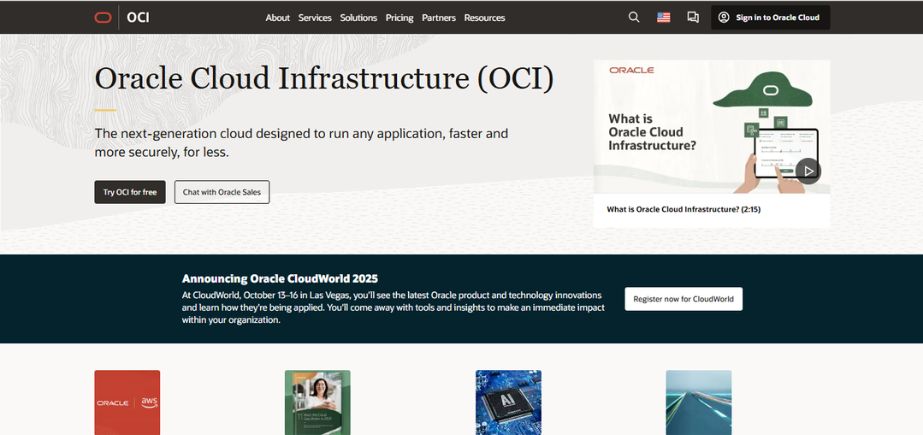
Oracle Cloud delivers its services specifically to organizations that need powerful computing abilities and advanced database solutions and business applications. The company focuses on providing cloud-based databases as well as analytical capabilities alongside Artificial Intelligence automation solutions.
The connection between Oracle Cloud and on-site systems enables businesses that want to move to cloud-based operations. The Autonomous Database feature streamlines management tasks which leads to better efficiency. The market penetration of Oracle Cloud remains smaller than AWS and Azure while its platform flexibility stands behind its competition. Organizations that require cloud-based ERP, finance and database solutions should choose this platform.
Key Features:
- Autonomous databases
- Cloud ERP, HCM, and SaaS solutions
- AI and machine learning capabilities
- Secure hybrid and multi-cloud options
Pros:
- Optimized for database-heavy workloads
- Strong enterprise security and compliance
Cons:
- Limited third-party integrations
- Learning curve for non-Oracle users
Pricing:
Pay-as-you-go and enterprise plans
Who Should Use It?
Large enterprises, especially those using Oracle databases.
6. Alibaba Cloud
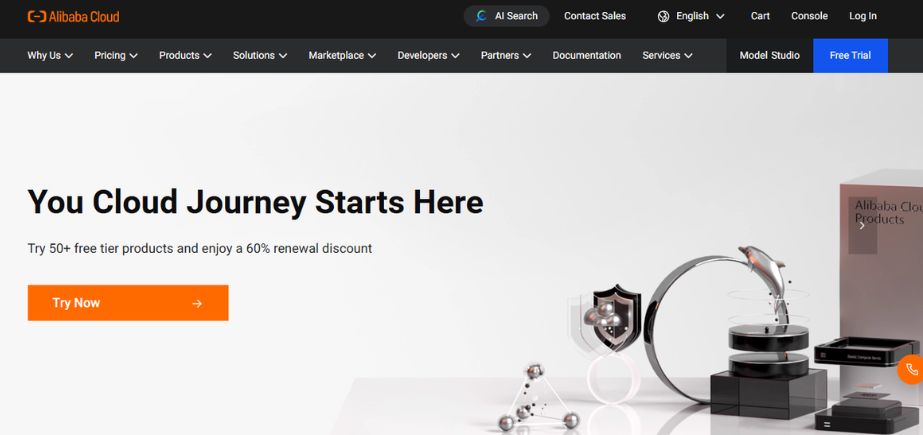
One of the leading cloud computing platforms in Asia under the name Alibaba Cloud delivers solutions that combine cloud computing capabilities with AI applications, massive data management and security services of scale. The cloud platform from Alibaba functions as AWS’s main rival throughout China and all across Asia.
Alibaba Cloud enables customers to access affordable services that encompass content delivery features machine learning capabilities and IoT support. The cloud provider has restricted its business activities mainly within Asian markets while AWS and GCP maintain broader global operations. The documentation provided by Alibaba Cloud contains fewer details than competitors do. The platform best serves companies based in Asia, particularly in e-commerce and technology and finance companies.
Key Features:
- Scalable cloud computing (ECS, Kubernetes)
- AI and big data analytics
- Security and compliance solutions
- Content delivery and networking
Pros:
- Strong presence in the Asian market
- Competitive pricing compared to AWS and Azure
Cons:
- Limited global data centers outside Asia
- Documentation may be less detailed than competitors
Pricing:
Pay-as-you-go and subscription-based plans
Who Should Use It?
Businesses operating in Asia needing scalable and cost-effective cloud services.
7. Salesforce Cloud
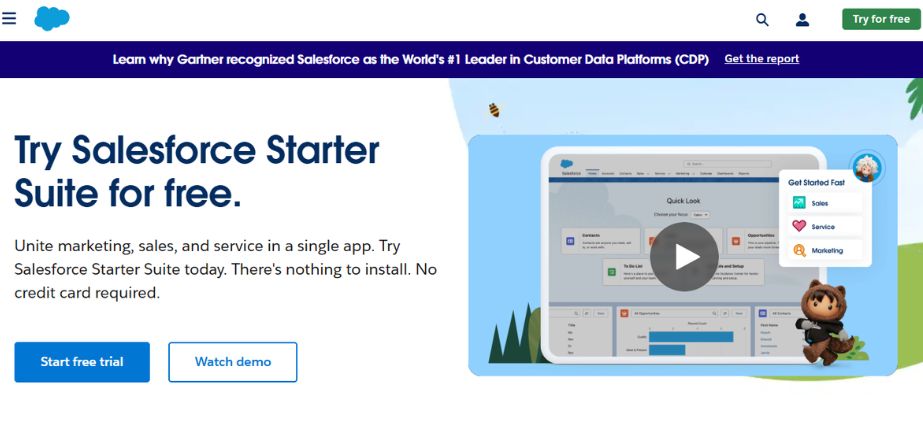
Salesforce Cloud exists as a business application platform and cloud-based CRM system. The platform provides artificial intelligence automation elements and customer data analysis with marketing functionality. Organizations leverage Salesforce Cloud to run efficient processes related to customer relationships as well as sales and marketing.
Companies find Salesforce Cloud suitable for partnerships with external applications, and it features extended capabilities that grow with businesses of any scale. The powerful CRM capabilities of the tool come with costs for small businesses that may exceed their budgets, while technical expertise is needed for customization. Companies that intend to manage customer relationships along with sales automation should consider this software solution.
Key Features:
- AI-powered sales and marketing automation
- Customer service and support tools
- Data analytics and reporting
- Secure cloud-based CRM
Pros:
- Industry leader in CRM solutions
- Strong AI and analytics capabilities
Cons:
- Expensive for small businesses
- Steep learning curve for beginners
Pricing:
$165/User/Month(Billed annually)
Who Should Use It?
Businesses need cloud-based CRM and customer engagement tools.
8. SAP Cloud Platform
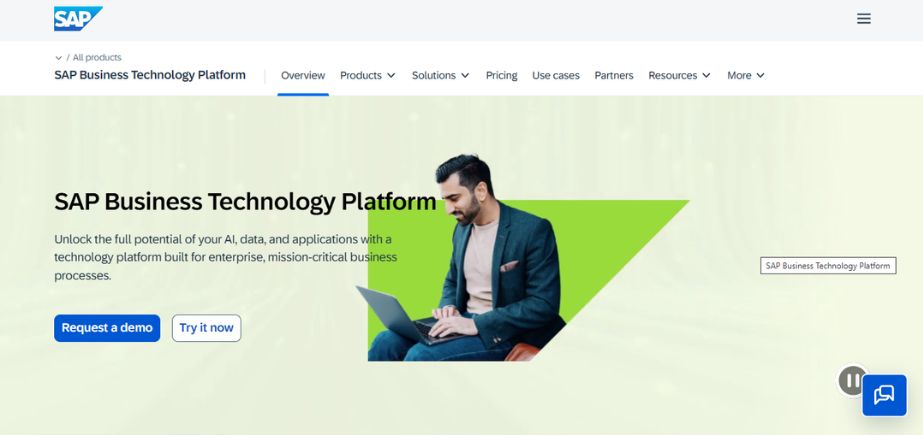
Business applications, Artificial Intelligence, and analytics are specialized SAP Cloud Platform features through its enterprise-level cloud computing solution. SAP Cloud Platform functions perfectly with SAP’s ERP solutions to serve organizations running finance HR and supply chain management operations.
SAP Cloud operates under hybrid cloud conditions which provides businesses with a simple path for migration. SAP Cloud Platform presents challenges to small businesses because it comes with a high price tag and requires considerable study time to use effectively. Enterprises should use this solution because it works well with SAP systems for analytical processing and automated business transformation initiatives.
Key Features:
- Integration with SAP enterprise applications
- AI, ML, and IoT solutions
- Hybrid and multi-cloud support
- Data security and compliance
Pros:
- Best for enterprises using SAP solutions
- Strong data analytics and AI capabilities
Cons:
- Expensive for smaller businesses
- Limited third-party integrations
Pricing:
Subscription-based pricing
Who Should Use It?
Enterprises using SAP for ERP, finance, and supply chain management.
9. VMware Cloud
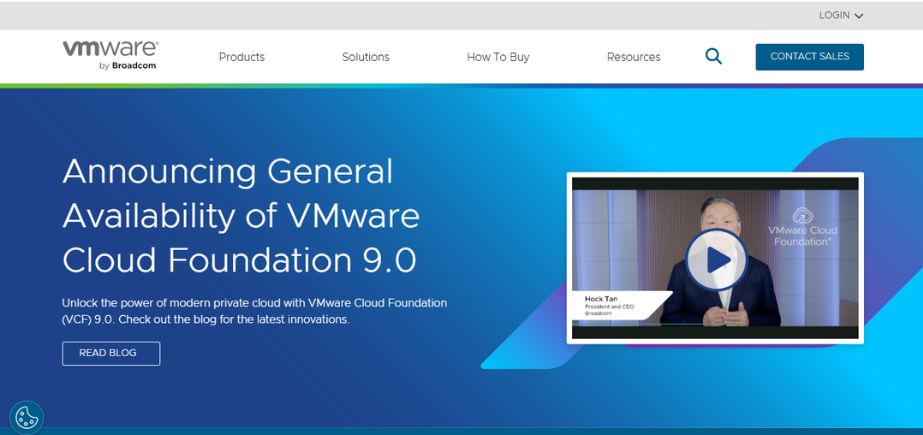
Through VMware Cloud users receive hybrid and multi-cloud solutions that enable workload management between public and private cloud deployments. VMware Cloud serves as an integration tool between AWS Azure and Google Cloud to simplify cloud migration procedures.
The security features at VMware Cloud operate in concert with its automation capabilities and disaster recovery solutions. The maximum use of VMware Cloud depends on specialized expertise which leads to high expense levels for small businesses. A hybrid cloud infrastructure requires VMware Cloud because it is its ideal deployment environment.
Key Features:
- Hybrid and multi-cloud integration
- Secure workload migration
- AI-powered automation
- Disaster recovery solutions
Pros:
- Strong for virtualization and hybrid cloud environments
- Excellent security and compliance
Cons:
- Expensive for small businesses
- Requires VMware expertise for optimal use
Pricing:
Subscription-based, varies by deployment size
Who Should Use It?
Enterprises using VMware for virtualization and hybrid cloud deployments.
10. Dell Technologies Cloud
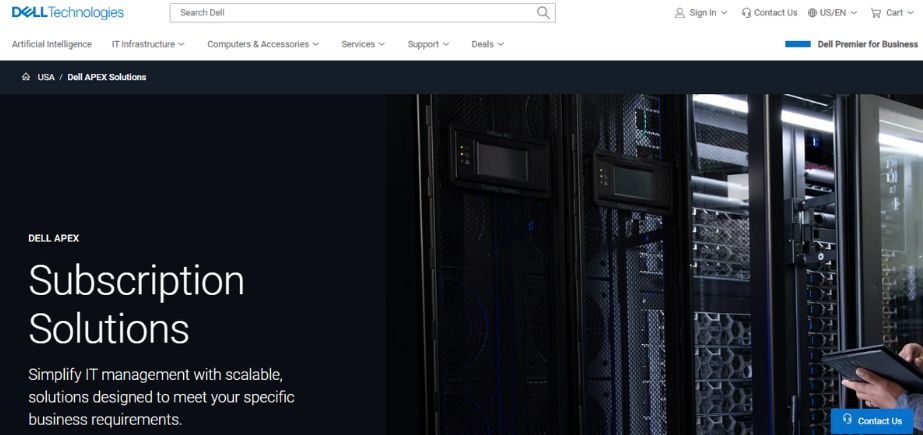
Dell Technologies Cloud integrates multi-cloud solutions that merge on-site and cloud-hosted IT infrastructure together. The platform delivers AI-powered workload optimization as well as hybrid cloud management features together with secure storage solutions. The Cloud system from Dell provides optimal solutions for big organizations that require modernized IT infrastructure.
The high cost of initial investment combined with reduced software as a service (SaaS) features makes Dell Technologies Cloud difficult to recommend. The solution provides optimal benefits to organizations that handle both hybrid cloud systems and IT transformation projects.
Key Features:
- Hybrid cloud management
- AI-driven workload optimization
- Secure data storage and networking
- Integration with VMware and Microsoft Azure
Pros:
- Strong hybrid cloud capabilities
- Secure and scalable infrastructure
Cons:
- High initial investment for some businesses
- Limited SaaS offerings compared to AWS and Azure
Pricing:
Custom enterprise pricing
Who Should Use It?
Large enterprises needing hybrid cloud and IT modernization solutions.
11. Tencent Cloud
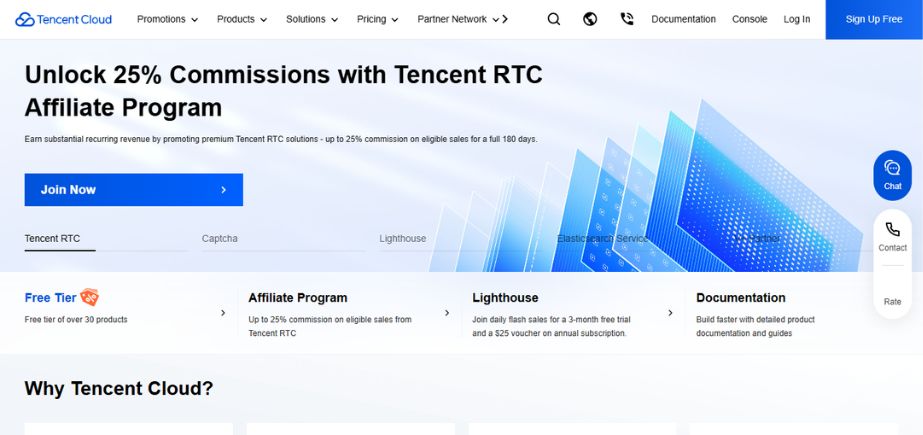
As China’s leading cloud provider Tencent Cloud delivers AI-enabled along with big data analysis and gaming cloud solutions to its users. Tencent Cloud delivers both cloud computing services at scale and complex network systems and robust security solutions. The vast majority of users in China and other Asian markets utilize Tencent Cloud solutions to power their digital entertainment platforms and fintech systems alongside their AI applications.
While Tencent Cloud maintains a smaller market footprint when compared to AWS and GCP it has weaker documentation specificity for international users because of its China-based operations. The service provides optimal performance for companies running businesses in China and Asia that focus on gaming and fintech operations.
Key Features:
- AI-powered cloud computing
- Big data analytics and machine learning
- Secure cloud networking and storage
- Scalable infrastructure
Pros:
- Strong in Asia, particularly in China
- Competitive pricing compared to AWS and GCP
Cons:
- Limited presence outside Asia
- Fewer integrations compared to global competitors
Pricing:
Pay-as-you-go and subscription-based pricing
Who Should Use It?
Businesses in Asia needing AI-powered cloud solutions.
12. HPE GreenLake
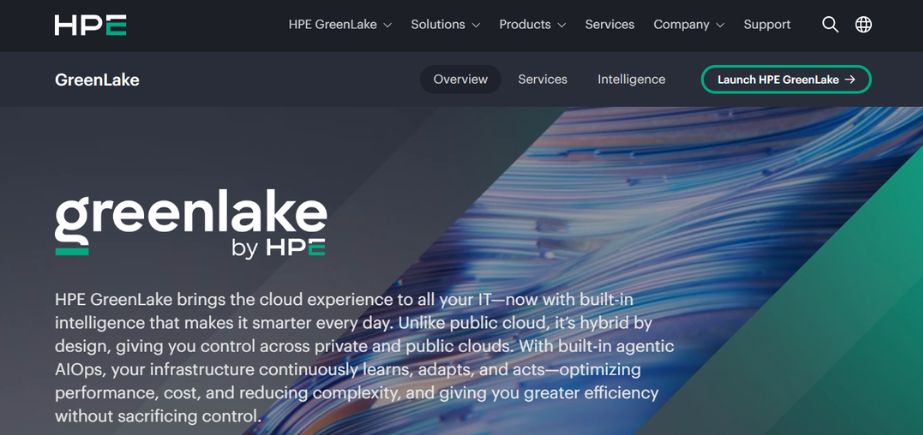
HPE GreenLake delivers edge-to-cloud platform solutions that give enterprises adaptable cloud services. The system enables clients to utilize AI optimization technology and pay-per-usage features across multi-cloud infrastructure. Through GreenLake customers can grow their IT resources based on demand requirements and achieve security and compliance management. Even so, the SaaS features offered by this system are limited when aimed at small business customers. Enterprises requiring adaptable hybrid cloud capabilities find GreenLake to be their best solution.
Key Features:
- Hybrid and multi-cloud support
- AI-driven workload optimization
- On-premises and cloud-based deployment
- Pay-as-you-go pricing model
Pros:
- Strong hybrid cloud capabilities
- Cost-efficient for enterprises needing flexible cloud solutions
Cons:
- Limited SaaS offerings
- Not ideal for small businesses
Pricing:
Pay-as-you-go, customized pricing
Who Should Use It?
Enterprises requiring flexible, hybrid cloud solutions.
13. Cisco Cloud
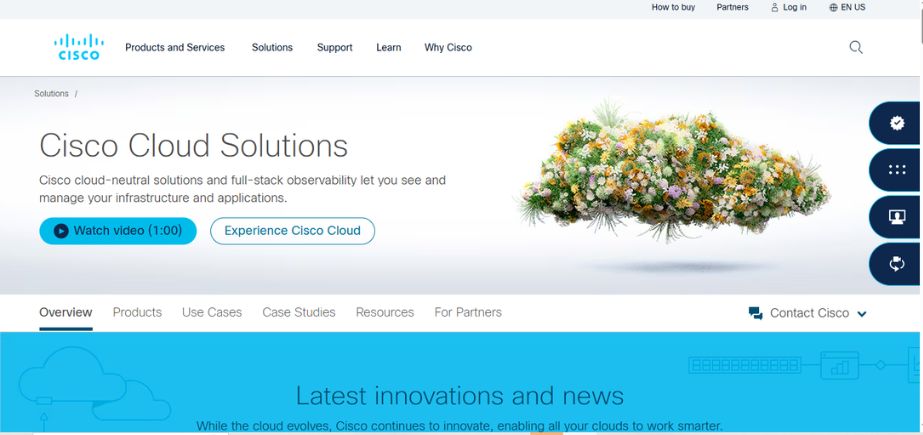
The core fundamentals of Cisco Cloud consist of secure networking capabilities together with AI automation and multi-cloud management features. Cisco Cloud functions as an integration system that links Cisco security tools to present advanced network services for enterprise clients. Businesses focused on network optimization together with strong cybersecurity should use Cisco Cloud as their preferred solution.
Unfortunately, small businesses cannot achieve better value through this system because the general-purpose cloud computing services and costs are inadequate. The platform functions optimally for organizations that value network security together with cloud connection capabilities.
Key Features:
- Secure cloud networking solutions
- AI-powered automation and monitoring
- Multi-cloud management
- Integration with Cisco security products
Pros:
- Best for networking and security-focused businesses
- Strong multi-cloud connectivity features
Cons:
- Limited general-purpose cloud computing services
- Higher pricing for small businesses
Pricing:
Custom enterprise pricing
Who Should Use It?
Enterprises needing secure, network-focused cloud solutions.
14. Red Hat OpenShift
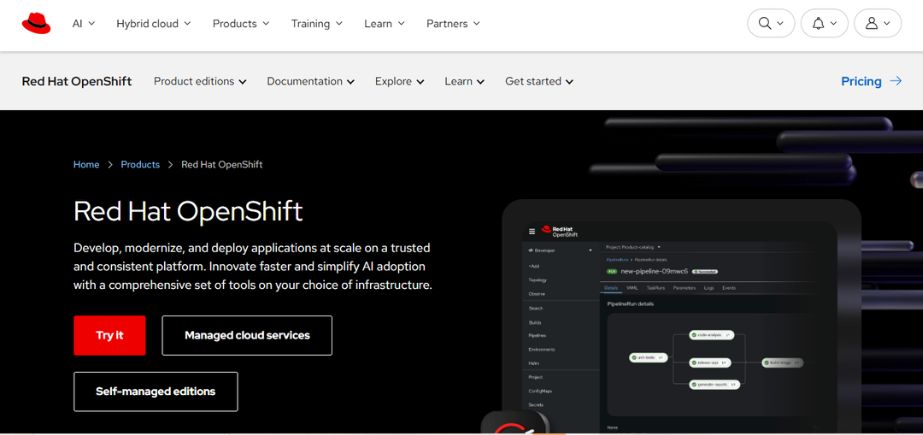
Organizations can leverage Red Hat OpenShift as their solution to build Kubernetes-based hybrid cloud platforms that specifically support containerized applications. OpenShift provides support for DevOps functionality alongside automatic Continuous Integration/Continuous Delivery streams and solutions for multiple cloud systems.
Many developers select OpenShift because it serves as their primary platform for developing cloud-native applications. The requirement of Kubernetes expertise along with potential expense barriers makes it inappropriate for small teams. OpenShift delivers its best value to businesses maintaining developer teams who develop containerized applications and handle cloud-native programming.
Key Features:
- Kubernetes-based container orchestration
- Multi-cloud and hybrid cloud support
- DevOps and CI/CD integration
- AI-powered automation
Pros:
- Strong for containerized applications and DevOps
- Excellent multi-cloud support
Cons:
- Requires Kubernetes expertise
- Pricing can be high for smaller teams
Pricing:
Subscription-based pricing
Who Should Use It?
Developers and enterprises using Kubernetes for containerized applications.
15. DigitalOcean
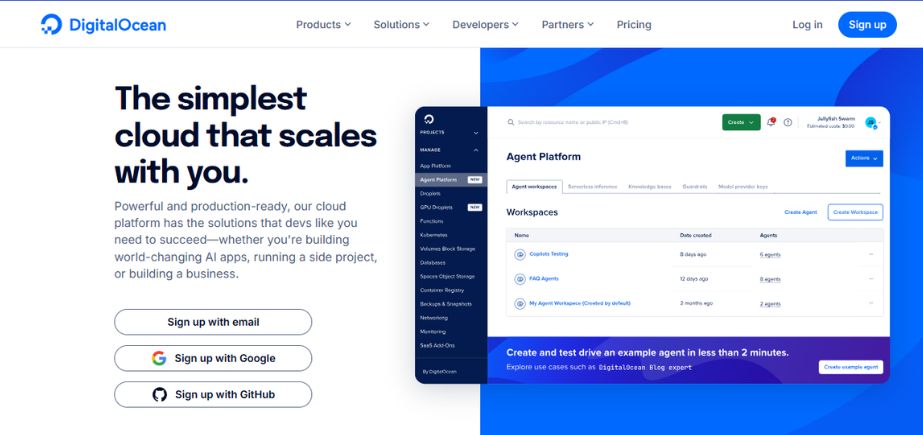
Starting from developers and moving onto startups DigitalOcean presents basic yet economical cloud computing services. Users can access Kubernetes and managed databases and scalable virtual machines through its service. Users appreciate DigitalOcean because its platform simplifies developer work alongside providing straightforward pricing displays.
DigitalOcean lacks many enterprise-level capabilities present in AWS and Azure as well as extending across smaller global infrastructure networks. The platform works optimally for companies that fall into three categories: beginnings, developers who operate individually and businesses with limited resources seeking economic cloud infrastructure.
Key Features:
- Affordable cloud hosting
- Developer-friendly APIs
- Managed Kubernetes and databases
- Scalable virtual machines
Pros:
- Cost-effective for startups and developers
- Simple and easy-to-use interface
Cons:
- Limited enterprise features compared to AWS and Azure
- Fewer global data centers
Pricing:
Starts at $4/month for basic plans
Who Should Use It?
Startups, developers, and small businesses needing affordable cloud computing.
Comparison Between Different Cloud Computing Platforms
Here is a comparison table summarizing the key features, pricing, use cases, and websites of the top 15 cloud computing platforms:
| Cloud Platform | Key Features | Pricing | Use Cases | Website |
| Amazon Web Services (AWS) | Scalable cloud infrastructure, AI/ML, storage, networking | Pay-as-you-go | Enterprises, startups, developers | aws.amazon.com |
| Microsoft Azure | AI, hybrid cloud, IoT, DevOps integration | Pay-as-you-go, enterprise plans | Enterprises, developers, IT professionals | azure.microsoft.com |
| Google Cloud Platform (GCP) | Scalable compute, big data, AI, Kubernetes | Pay-as-you-go, free tier available | Data-intensive businesses, AI-driven applications | cloud.google.com |
| IBM Cloud | AI, machine learning, hybrid cloud, enterprise security | Custom pricing | AI-powered enterprise solutions, hybrid cloud adoption | ibm.com/cloud |
| Oracle Cloud | Database services, AI, security, multi-cloud | Pay-as-you-go, subscription plans | Enterprises using Oracle databases and cloud applications | oracle.com/cloud |
| Alibaba Cloud | AI, big data analytics, security, global CDN | Pay-as-you-go, subscription plans | Businesses operating in Asia, e-commerce, cloud AI | alibabacloud.com |
| Salesforce Cloud | Cloud-based CRM, AI-driven analytics, customer engagement | $165/User/Month(Billed annually) | Businesses needing customer relationship management | salesforce.com |
| SAP Cloud Platform | ERP integration, AI, analytics, IoT | Request a quote | Enterprises using SAP for business operations | sap.com/products/cloud-platform |
| VMware Cloud | Hybrid/multi-cloud, secure workload migration, automation | Custom pricing | Enterprises using VMware virtualization and hybrid cloud | vmware.com |
| Dell Technologies Cloud | Hybrid cloud solutions, AI-driven workload optimization | Enterprise pricing | Large businesses needing hybrid cloud infrastructure | delltechnologies.com/cloud |
| Tencent Cloud | AI, cloud computing, big data, security | Pay-as-you-go | Businesses in Asia, AI-powered solutions | intl.cloud.tencent.com |
| HPE GreenLake | Edge-to-cloud, hybrid IT solutions, AI automation | Pay-as-you-go | Enterprises needing scalable, hybrid cloud management | hpe.com/us/en/greenlake |
| Cisco Cloud | Secure networking, multi-cloud management, AI-driven automation | Enterprise pricing | Enterprises needing secure, network-focused cloud solutions | cisco.com/c/en/us/solutions/cloud.html |
| Red Hat OpenShift | Kubernetes-based container orchestration, DevOps integration | Subscription-based | Developers managing containerized applications | redhat.com/en/technologies/cloud-computing/openshift |
| DigitalOcean | Affordable cloud hosting, managed Kubernetes, developer tools | Starts at $4/month | Startups, developers, small businesses | digitalocean.com |
Conclusion
Cloud computing platforms provide various solutions for businesses, developers, and enterprises with different requirements including infrastructure management, AI, big data processing, and application development. Amazon Web Services (AWS), Microsoft Azure, and Google Cloud Platform (GCP) are the leading options for large enterprises because they have a wide range of features, scalability, and worldwide reach. IBM Cloud and Oracle Cloud are best suited for companies that need AI-powered and database-centric solutions, whereas Alibaba Cloud is a good bet for companies with operations in Asia.
For developers and startups, DigitalOcean offers affordable and developer-centric cloud services, while Red Hat OpenShift and VMware Cloud are optimal for hybrid and multi-cloud deployments. Salesforce Cloud continues to be the best choice for CRM and business applications, while SAP Cloud Platform is optimal for enterprise resource planning (ERP). Companies that require AI, networking, or edge computing can utilize Tencent Cloud, Cisco Cloud, and HPE GreenLake.
Choosing the suitable cloud computing platforms relies on aspects such as cost, integration, performance, and security. Companies with heavy workloads need to use AWS or Azure, whereas small companies can find DigitalOcean or Google Cloud more affordable. In the end, the ideal platform suits your company’s needs, scalability requirements, and budget limitations.
FAQs
1. What are cloud computing platforms?
Cloud computing platforms offer on-demand computing resources like servers, storage, databases, networking, and software through the Internet. They help firms scale efficiently, save on infrastructure, and deliver improved performance.
2. How do I select right cloud computing platforms for my business?
Choosing the appropriate platform depends on considerations such as cost, scalability, security, compliance, and integration with the current infrastructure. AWS, Azure, and Google Cloud are suitable for big corporations, whereas DigitalOcean and Alibaba Cloud are suitable for startups and local businesses.
3. What are the advantages of cloud computing platforms?
Cloud infrastructures provide flexibility, cost savings, improved security, and high dependability. They provide faster application deployment, workload-balanced dynamically, and take advantage of better technologies such as AI and big data.
4. Is cloud computing secure?
There are cloud providers that are reliable and possess strong security controls such as encryption, multi-factor authentication, and compliance certification. However, best practices such as regular patching and access controls must also be implemented by firms to render data secure.
5. What is a public cloud, a private cloud, and a hybrid cloud?
A public cloud is a multi-user shared one, an organization-specific private cloud, and a hybrid cloud offers both a combination so that companies can easily access on-premises as well as cloud resources.
